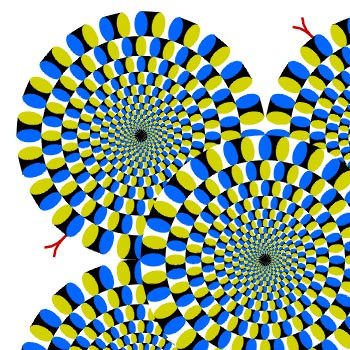Scientists Discover their Sixth Sense
Psychic powers and extra-sensory perception (ESP) are among the most important unexplained phenomena today because belief in them is so prevalent. Scientists have examined people who claim to have psychic powers, but results under controlled laboratory conditions have until now remained unclear. In the meantime, countless UFO advocates wait for a coming disclosure of flying saucer evidence from world governments not simply to confirm that we are not alone in the universe, but to also bring in alien technology that may help us to use our minds and bodies to their full potential. A recent Newsweek magazine feature article candidly reported:
For if you have never had a paranormal experience such as these, and believe in none of the things that science says do not exist except as tricks played on the gullible oras neuroscientists are now beginning to seeby the normal workings of the mind carried to an extreme, well, then you are in a lonely minority. According to periodic surveys by Gallup and other pollsters, fully 90 percent of Americans say they have experienced such things or believe they exist.
If you take the word normal as characteristic of the norm or majority, then it is the superstitious and those who believe in ESP, ghosts and psychic phenomena who are normal. Most scientists and skeptics argue, Belief in anything for which there is no empirical evidence is a sign of mental pathology and not normalcy. But can skeptics really classify 90 percent of a nations entire population as schizophrenics without appearing to be patently antidemocratic or irrational themselves?
Less than 10 percent of the U.S. population is firmly skeptical. Most of the cynical observers are in some way connected to large university grants and to the powerful military-industrial complex that President Dwight Eisenhower warned us about in his 1961 farewell speech: In the councils of government, we must guard against the acquisition of unwarranted influence, whether sought or unsought, by the military-industrial complex. Eminent skeptics are often associated with producing scientific weaponry or technical and biological systems for greedy economies based on perpetual conflicts. At one time or another, almost every great modern physicist has imagined becoming the next father of the bomb. This tiny group of skeptics has no real concern for the value of life or the human spirit, yet it manipulates enough control over the media and the financial markets of the world to present itself as the normal mentality or standard of intellect. One such compensation, it is fair to say, is a feeling of intellectual superiority. It is rewarding to look at the vast hordes of believers, conclude that they are idiots and delight in the fact that you arent. But ironically, among the bigheaded achievements of this small elitist group of scientific skeptics are global warming and economic meltdown massive failures in very plain terms.
Some 40 percent of Americans believe it’s possible that aliens have abducted some of us, polls show,compared with 25 percent in the 1980s.
Faced with such daunting rising numbers, the skeptics have shifted their debunking strategies. They can no longer go on accusing believers everywhere of being mentally challenged. For, there are simply too many of them to represent a statistical eccentricity. Instead, the skeptics new game plan is to label such intuitive ideas as normal workings of the mind taken to a maximum value. Theyre being nice about it nowadays, or more politically correct. But in that willowy gap, we can also catch a glimpse of some amazing discoveries that were cautiously kept out of the mainstream media until now. For example, the belief that animals have a sixth sense for danger is an ancient one. That theory is likely to gain acceptance as a result of what happened during the 2004 Indian Ocean tsunami: Wild animals seem to have escaped the Indian Ocean tsunami, adding weight to notions they possess a sixth sense for disasters, experts said. Sri Lankan wildlife officials have said the giant waves that killed over 24,000 people along the Indian Ocean island’s coast seemingly missed wild beasts, with no dead animals found.
No elephants are dead, not even a dead hare or rabbit. I think animals can sense disaster. They have a sixth sense. They know when things are happening, H.D. Ratnayake, deputy director of Sri Lanka’s Wildlife Department, said.
It was recently discovered that the same genes that give sharks their sixth sense and allow them to detect electrical signals are also responsible for the development of head and facial features in humans, according to a new study from the University of Louisiana. The finding supports the idea that the early sea creatures that eventually evolved into humans could also sense electricity before they emerged onto land. Sharks have a network of special cells that can detect electricity, called electroreceptors, in their heads. They use them for hunting and navigation. This sense is so developed that sharks can find fish hiding under sand by honing in on the weak electrical signals emitted by their twitching muscles. 3 Since 2001, Eric Stroud and Michael Herrmann have been working on a chemical shark repellent. According to Herrmann, he and Stroud were playing around with powerful rare-earth magnets in 2005, when he dropped one next to their shark research tank in Oak Ridge, New Jersey. The lemon and nurse sharks inside instantly darted to the opposite wall. In testing at the Bimini Biological Research Station shark lab in the Bahamas, Stroud and Herrmann found that sharks dramatically avoid magnets made from neodymium, iron and boron. The magnets even rouse sharks from tonic immobility, a coma-like state induced by turning them upside down.
Biologist Rupert Sheldrake, author of Dogs That Know When Their Owner is Coming Home, believes that animals have perceptive abilities of telepathy and premonitions. Veterinarian and author Dr. Allan Schoen says in his book, Kindred Spirits, that people and animals are intimately connected. Pets whom we feel especially close to seem to understand our needs, read our moods, and even communicate with us on a level that transcends words or body language.
Physician and author Dr. Larry Dossey says there is a connection between all species, which is not limited by locality. He refers to it as a nonlocal mind. Consciousness is not restricted to the brain or the body, or time or place. Therefore, people and animals can have an effect on each other, even when miles apart. 5 Can pets be so linked and in step with their owners when they are far apart, even when there is no possible way they could be using their sense of smell or hearing? An awareness of death is certainly not restricted to humans. The huge attention generated by the case of the intuitive American cat, Oscar, points to the interest psychic pet behavior holds:
Oscar lives in a nursing home and has an uncanny ability to sense when a resident is about to die. When a patient is near death, Oscar nearly always appears and hops on the bed. The staff have come to recognize and respect Oscar’s instincts, and send for the relatives of any patient he has chosen to curl up beside. But they have no explanation for it. Oscar shows no interest in patients who are simply in poor shape, or who still have a few days to live.
Oscar, a hospice cat has an uncanny knack for predicting when nursing home patients are going to die. One theory says a cat’s acute sensitivity to smell might enable it to detect some subtle change in metabolism around the time of death, but no one has been able to explain why any moggy should show an interest in the approach of the Grim Reaper.
Have you ever noticed that herds of grazing animals all face the same way? Images from Google Earth have confirmed that cattle tend to align their bodies in a north-south direction. Wild deer also display this behavior a phenomenon that has apparently gone unnoticed by herdsmen and hunters for thousands of years. In the Proceedings for the National Academy of Sciences, scientists said the Earths magnetic fields may influence the behavior of these animals. The Earth can be viewed as a huge magnet, with magnetic north and south situated close to the geographical poles. Many species including birds and salmon are known to use the Earths magnetic fields in migration, rather like a natural GPS. A few studies have shown that some mammals including bats also use a magnetic compass to help their sense of direction.
Dr Sabine Begall, from the University of Duisburg-Essen, Germany, and colleagues surveyed Google Earth images of 8,510 grazing and resting cattle in 308 pasture plains across the globe. Sometimes it took hours and hours to find some pictures with good resolution, said Dr Begall. The scientists were unable to distinguish between the head and rear of the cattle, but could tell that the animals tended to face either north or south. 7 The scientists noted that it’s amazing that this ubiquitous phenomenon does not seem to have been noticed by herdsmen, ranchers, or hunters.
Willy Miller a Scottish cattle farmer remarked: Ive never noticed that my cows all face the same way.
Another German research team made the equally surprising discovery that magpies have a sense of selfrecognition when looking in a mirror. Until now, this characteristic human capability has been seen clearly only in apes, though also, as the team noted, at least suggestively in dolphins and elephants. It also noted that the magpie findings suggest that essential components of human self-recognition have evolved independently in different vertebrate classes with a separate evolutionary history. Discovery of a magnetic sixth sense in deer and cattle has a broad implication. Many life forms as diverse as birds and bacteria have it. They use it primarily for navigation. But it is surprising to find it in pastoral cattle and foraging deer that do not appear to need such a
navigational aid. The researchers said that the findings challenge neuroscientists and biophysicists to explain how this magnetic sixth sense works.
The human sixth sense has been, by far, the most ridiculed and debunked individual ability throughout all the ages. But now, a sixth sense is finally being discovered, revealed, and even revered by some modern scientists without much anathema as our natural sense of balance. An up to date New York Times, International Herald Tribune newspaper story plainly reported: Essential to a fully embodied sense of self is the vestibular system, a paired set of tiny sensory organs tucked deep into the temporal bone on either side of the head, right near the cochlea of the inner ear. The
vestibular system isnt a high-profile, elitist sense like the famed five of vision, hearing, touch, taste and smell.
Its more of a Joe Sixth-Sense, laboring in anonymity and frequently misunderstood. 9Three of the organs are designed to detect twisting movements of the head, by sensing the discrepancy
between the angular momentum of the membranes, which are attached to the bone, and that of the free-floating fluid, which lags slightly behind. The other two organs have tiny stones of
calcium carbonate, which rise and fall like flakes in a snowglobe and so detect the effects of gravity and of linear head motions, if youre walking forward, for example, or up stairs. Despite its meek status, the vestibular system has lately won fans among neuroscientists, who marvel at its sophistication and sensitivity, and how it tells us where we are and what were doing. It is not only crucial for perceptual stability, but it is also required to produce neural representations of the environment in order to accurately guide our behavior. Loss of function
Read complete article at http://www.blackraiser.com/mibzip/sixthsense.pdf



